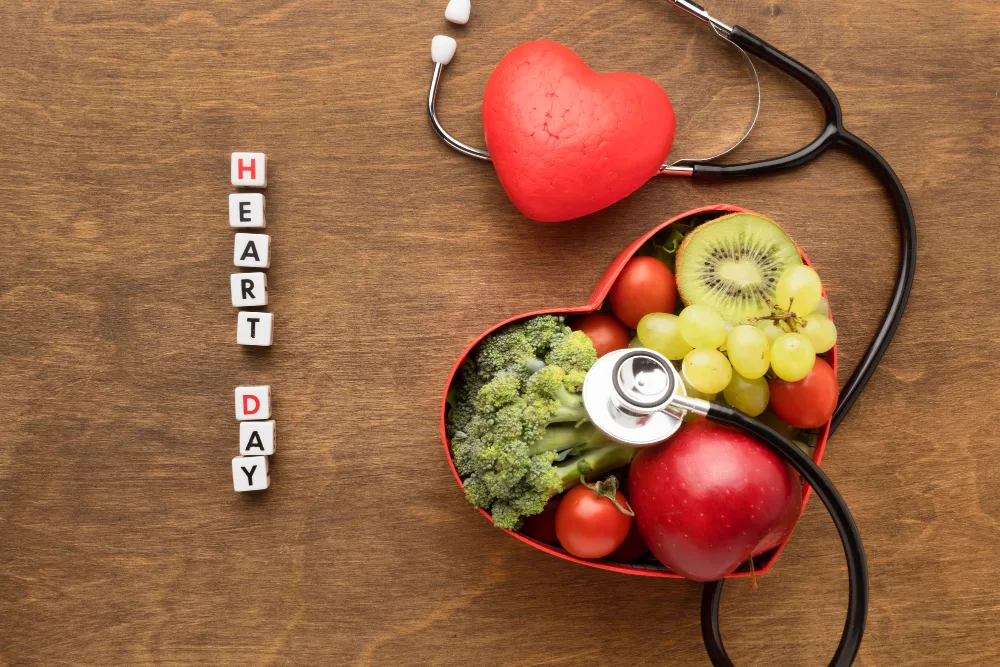Diet And Lifestyle Tips To Prevent Kidney Stones Naturally
Category: Urology
Introduction
Kidney stones are a common health issue that can cause immense pain and discomfort. However, the good news is that making mindful diet and lifestyle choices can play a significant role in preventing them naturally. Kidney stones form when there is an imbalance of certain substances in the urine, leading to the crystallization of minerals. The key to prevention lies in ensuring your body has the right nutrients and hydration to maintain optimal kidney health.
In this blog, we’ll explore the foods, drinks, and lifestyle tips that can help prevent kidney stones from forming. By adopting these preventive measures, you can significantly reduce your risk and maintain a healthy, stone-free life.
Foods to Include in Your Diet
1. Citrus Fruits (Lemons, Oranges, Grapefruits) Citrus fruits are rich in citric acid, which can help prevent the formation of kidney stones. Citric acid binds to calcium in the urine, reducing the chances of calcium stone formation. Incorporate lemons and oranges into your daily diet—either as snacks or by adding fresh juice to your water.
2. Whole Grains Whole grains such as brown rice, oats, ragi and quinoa are excellent sources of fiber, which helps regulate your digestive system and prevents the overproduction of oxalates. Oxalates are compounds that can contribute to the formation of kidney stones, particularly calcium oxalate stones.
3. Leafy Greens Leafy greens are packed with essential vitamins, minerals, and antioxidants that help support kidney health..
4. Berries (Strawberries, Blueberries, Raspberries) Berries are rich in antioxidants and vitamins, particularly vitamin C, which can help break down harmful substances in the kidneys and prevent kidney stones. They're also low in oxalates, making them a safe and delicious choice.
5. Low-fat Dairy (Milk, Yogurt, Cheese) Dairy products are a great source of calcium, which helps balance oxalate levels in the body and prevents the formation of calcium oxalate stones. Opt for low-fat or fat-free versions to enjoy the benefits without increasing saturated fat intake.
6. Cucumbers are not only hydrating but also help flush out excess sodium and toxins from the body, making them great for kidney health. They are also rich in water content, which helps in maintaining the kidneys' function.
7. Apples Apples are a fantastic source of dietary fiber and antioxidants. They promote kidney health by helping to regulate blood sugar and reduce the buildup of waste products in the kidneys. Eating an apple a day may help keep kidney stones at bay!
Drinks to Include in Your Diet
1. Water Hydration is the most effective way to prevent kidney stones naturally. Drinking sufficient water helps dilute the substances that cause stones to form. Aim for at least 8 glasses of water per day to flush out toxins and maintain kidney function. You can also enhance your water by adding lemon juice, which further helps in preventing stone formation.
2. Lemon Juice Lemon juice is an excellent natural remedy for preventing kidney stones due to its high citric acid content. Drinking diluted lemon juice in water throughout the day can help maintain a healthy balance of minerals in the kidneys.
3. Herbal Teas (Dandelion, Nettle, Green Tea) Certain herbal teas can support kidney health and prevent stone formation. Dandelion tea is known for its ability to promote detoxification, while nettle tea can help reduce urinary calcium excretion. Green tea, rich in antioxidants, has also been linked to improved kidney health.
4. Coconut Water Coconut water is a hydrating drink that contains electrolytes and helps balance the body’s mineral levels. It is also rich in potassium, which can help prevent the formation of kidney stones by reducing the levels of calcium in urine.
5. Pomegranate Juice Pomegranate juice is packed with antioxidants that help in cleansing the kidneys and preventing kidney stones. Its high vitamin C content also contributes to overall kidney health.
Lifestyle Tips to Prevent Kidney Stones
1. Maintaining a Healthy Weight Being overweight or obese increases the risk of developing kidney stones. Maintaining a healthy weight through regular exercise and a balanced diet can help reduce this risk.
2. Limit Sodium Intake Excess sodium can increase calcium in the urine, which contributes to the formation of kidney stones. Avoid processed foods, canned soups, and fast foods high in sodium to prevent this.
3. Limit Animal Protein While protein is essential, too much animal protein (especially red meat) can increase uric acid in the urine, a major contributor to uric acid stones. Instead, opt for plant-based proteins or moderate amounts of lean meat.
4. Avoid Excessive Oxalates While certain foods like spinach, rhubarb, and beets are healthy, they are also high in oxalates, which can contribute to kidney stone formation. If you're prone to kidney stones, reduce your intake of these foods.
5. Regular Exercise Physical activity can help regulate calcium and oxalate levels in the body, reducing the risk of kidney stones. Aim for at least 30 minutes of moderate exercise most days of the week.
FAQ
1. What is the most important thing to do to prevent kidney stones? The most important thing is to stay hydrated. Drinking enough water helps dilute substances in the urine that can cause kidney stones to form.
2. Are there any specific foods I should avoid to prevent kidney stones? Foods high in oxalates (like spinach, rhubarb, and nuts) and excessive salt should be avoided. Reducing animal protein and sugary drinks is also recommended.
3. How much water should I drink to prevent kidney stones? It’s recommended to drink at least 8 cups (3-4 litters) of water daily to maintain kidney health and prevent kidney stones.
4. Can I drink coffee or tea with kidney stones? Moderate amounts of coffee and tea are fine for most people. However, excessive caffeine can lead to dehydration, which can increase the risk of kidney stones.
5. Can exercise help prevent kidney stones? Yes, regular exercise helps maintain a healthy weight and regulates calcium and oxalate levels, which can reduce the risk of kidney stones.
For more information on kidney health and prevention of kidney stones, visit Lokmanya Hospitals.





